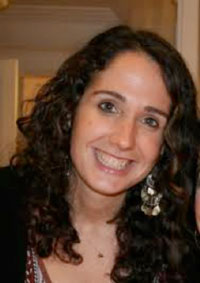by Rachel Sopher (USA)
 The National Institute for the Psychotherapies’ annual conference, entitled The Immigrant in the Consulting Room took place in May 2014, in New York City. The daylong exploration focused on the unique challenges facing the immigrant to the United States and the kinds of impact the immigration status of both patient and psychoanalyst can have on therapeutic treatment. As co-director of the conference, Susan Obrecht, LCSW stated in her opening remarks, America is a land of immigrants and as such we have a responsibility to be sensitive to the unique dilemmas they face. Due to ease of travel and access to technology such as Skype, text, and email, the contemporary immigrant is faced with a new range of challenges, including ambiguous loss, split loyalties, and hybrid identities. The question remains of how to help patients to “stand in the spaces” between mother country and new land—and if this outcome is even possible, or desirable.
The National Institute for the Psychotherapies’ annual conference, entitled The Immigrant in the Consulting Room took place in May 2014, in New York City. The daylong exploration focused on the unique challenges facing the immigrant to the United States and the kinds of impact the immigration status of both patient and psychoanalyst can have on therapeutic treatment. As co-director of the conference, Susan Obrecht, LCSW stated in her opening remarks, America is a land of immigrants and as such we have a responsibility to be sensitive to the unique dilemmas they face. Due to ease of travel and access to technology such as Skype, text, and email, the contemporary immigrant is faced with a new range of challenges, including ambiguous loss, split loyalties, and hybrid identities. The question remains of how to help patients to “stand in the spaces” between mother country and new land—and if this outcome is even possible, or desirable.
In her keynote address, Ghisalaine Boulanger, Ph.D., oriented the audience to the predicament of many immigrants who must face the psychic dilemma of yearning for a sense of belonging while simultaneously feeling perpetually estranged. An immigrant can often feel forced to choose between two disparate self states, one representing the country of origin and another eager to adopt the values of the new country. She advocates that psychoanalysts attempt to build a transitional home for the immigrant by ‘seeing double’—recognizing and holding various identities in dialectical tension with each other without losing the complexity of the patient’s experiences or cultural allegiances. Dr. Boulanger concluded that immigrants must come to accept their experience of living life as a ‘chronic other’ and come to understand that belonging is not defined by citizenship or status but a feeling of being deeply recognized and understood.
Shifting gears to the personal experiences of an immigrant analyst, Lama Khouri, CAPC, LMSW described what it has been like for her to live in the United States for 24 years under the status of “temporary visitor.” She elaborated the impact of this status on her sense of self through the organizing influence of the social third and internal recognition of her culturally-defined self. She described her personal journey in which the treatment of groups of Arab-American boys and girls brought her into contact with feelings about her own ‘Arab self’ and made her realize the ways she, and immigrants like her, often subtly take on the dominant culture’s biases towards foundational parts of their own identities.
The second half of the day centered on the analysis of an episode of HBO’s In Treatment that portrayed complex relational family dynamics involved in settling an immigrant father into his grown son’s home. Usha Tummala-Nara, PhD used this narrative as an example of the unbounded nature of immigrant identity and the kind of endless melancholia that can arise from the fantasy of assimilation as an impossible, longed-for hope and unreachable ideal. Her presentation highlighted several of the potential emotional sequelae of immigration including the impact of social stigma, the loss of contextual continuity and the dissociation or disavowal of critical parts of the self in order to avoid painful conflictual feelings. Robert Grossmark, PhD followed with his own commentary, addressing the experiences of dislocation, loss of self-continuity, and alienation experienced by many immigrants. He reminded us that many immigrants feel robbed of their subjectivity and sense of agency, and feel they live in a world shaped by others. As such, Dr. Grossmark asserts that immigration is an intersubjective event that can be held and repaired through recognition and companioning from within an interpersonal relationship.
The daylong conference ended with a discussion among the entire panel, which touched on global themes of recognition, mourning, and loss. The panel agreed that the conference raised questions for further exploration and called on the psychoanalytic community to further investigate these important issues.
Rachel Sopher is the co-director of NIP’s annual conference and associate editor of Psychoanalytic Perspectives. She is a psychoanalyst in private practice in Manhattan.

